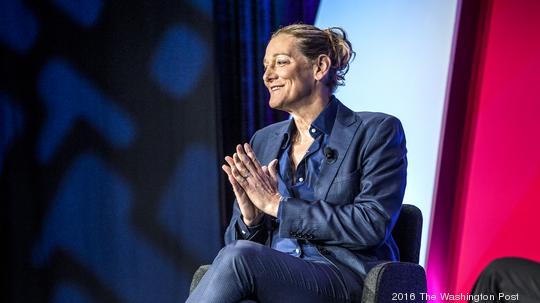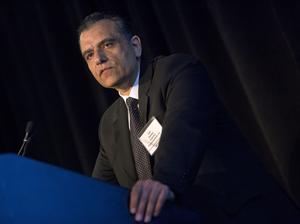
A patient in New York received the first successful transfer of an organ from a genetically altered pig, marking a major scientific advancement driven by a Montgomery County biotech.
The surgery at NYU Langone Health in New York City, first reported Tuesday by USA Today, involved the successful transplant of a kidney grown in a donor pig developed by Revivicor, a subsidiary of Silver Spring’s United Therapeutics Corp.
During the procedure, the kidney was transplanted into a brain-dead patient on life support with poor kidney function whose family had granted consent for the experiment, Reuters reported. And because the pig’s genes had been changed, the patient’s body didn’t immediately reject the organ; rather, the kidney functioned outside of the body for about three days as researchers monitored it.
Genetically engineered pigs “could potentially be a sustainable, renewable source of organs — the solar and wind of organ availability,” Dr. Robert Montgomery, director of the NYU Langone Transplant Institute, who performed the surgery, told The New York Times.
In December 2020, federal regulators approved the genetically modified pig used in the NYU procedure — whom United Therapeutics called GalSafe — for food and medical products such as blood thinners. But the ultimate goal, United Therapeutics said at the time, is to develop a method for the pig’s organs to be used in people who need transplants.
United Therapeutics (NASDAQ: UTHR), which makes drugs for pulmonary arterial hypertension and associated lung diseases, has spent years laying groundwork to break into xenotransplantation — the process of transplanting organs between species — to help boost the supply for people in need of transplants. The company’s first facility, where it produces genetically modified pig organs that can be transplanted into people, opened in early 2020, first testing the organs in baboons. Those studies were necessary before the company could take the candidate to clinical trials.
United Therapeutics declined through a spokesman to comment for this story. A spokesman for NYU Langone Health declined to comment or share additional details until a formal announcement Thursday.
In the U.S. alone, more than 121,600 people need organ transplants — and of those, more than 100,700 need new kidneys, according to the National Kidney Foundation. Those patients require dialysis treatment to stay alive. And the wait time is roughly 3.6 years.
Shares in United Therapeutics were up 2.65% to $191.29 early afternoon Wednesday, after reaching a high of $194.22 earlier in the day, following the news.
The news hits after a disappointing disclosure for the biotech, which said Monday the Food and Drug Administration declined to give its stamp of approval for Tyvaso DPI, an inhaler the company has been developing to dispense a dry powder form of its pulmonary arterial hypertension drug, treprostinil. The company now expects a green light by summer 2022.
United Therapeutics, which changed its legal status in October to operate as a public benefit corporation, is led by CEO Martine Rothblatt, a Washington Business Journal Power 100 honoree.




